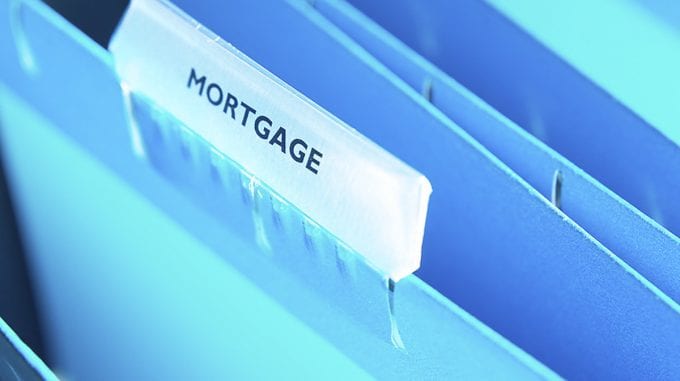Purchasing a home may be the biggest investment in your life, but getting a mortgage in Canada to fund the house can be quite overwhelming if you don’t understand the process. To get a mortgage in Canada, you need to know the complexities involved.
In this article, we explore the basics of getting a mortgage in Ontario and entire Canada. You’ll learn the steps to getting one and the requirements you need to qualify for the loan.
Understanding the Basics of Mortgages in Canada

A mortgage is a mutual agreement or contract between a prospective homebuyer and a lender who funds the home purchase. If you are planning to buy a house and you do not have enough funds to close the deal, you will most likely apply for one.
When applying for a mortgage, the lender will require you to use the property as security to offer you the loan. After purchasing the house, you’ll pay back the funds in installments until the loan is fully repaid. The standard repayment period is 30 years.
However, you must first offer a down payment to get a mortgage. It’s the initial amount of money you contribute from your pocket towards the home purchase. The amount of loan you’ll qualify for will be the home’s actual value less your down payment.
If you contribute more money as a down payment, you will definitely borrow a low amount of home loans, translating to little interest to pay back. If your down payment is more than 20 percent, the lender will offer you a conventional mortgage.
However, if the down payment is less than 20 percent, you’ll have to ensure the mortgage to protect your lender against losses in case you default payments. The mortgage default insurance may add up a significant amount of money to your home purchase costs.
Thankfully, there are many sources of down payment to use for your home purchase. It’s always a great idea to consult your lender and find out their down payment requirements. Generally, these requirements will rely on the following factors:
- Internal guidelines of your lender
- Nature of the house you are funding
- Amount of income you earn and credit profile
- Projected closing costs for purchasing the property
- Type of property you intend to purchase. Is it a house, a new build, or a raw land?
- How you intend to use the property. Will it be residential or commercial property?
Requirements for Getting a Mortgage in Canada

When buying a home in Canada using mortgages, you must meet all the conditions specified by your lender. Here are some other requirements.
1. Income Requirements
It’s no doubt that every lender will want to know your level of income before offering you a mortgage. So, you must prove to your lender that you have reliable sources of income, and you can confidently payback for it, plus all the other existing debts.
Other debts that can influence your ability to pay back the mortgage include credit cards, personal loans, credit lines, and any other debt. However, the ratio of your monthly debts to monthly income should be favorable.
If you have many outstanding debts, but a low amount of income, the chances are high that you will get no or small amount of mortgage. In that case, you can opt for a more affordable house to qualify for a mortgage that you can quickly repay.
2. Credit Score Requirements
You must also have a good credit history to increase your chances of getting a mortgage. Your credit history reflects how you have been paying your bills and debts in the last two years. Did you pay them on time?
In most cases, lenders use your credit score to predict your payment habits in the future. So, you need to have a high credit score to demonstrate that you will repay the mortgage as agreed. A credit score of between 650 and 680 can help you secure it.
Pre-Approval Process for Mortgages

To find out if you qualify for a mortgage, you can contact your lender and request for pre-approval. In this step, your prospective lender will evaluate your financial situation and go through your documents to determine if you are eligible for a mortgage.
The pre-approval process will also help the lenders determine the maximum amount of money they can lend you and the interest rate you will pay. Besides, it will also help you estimate your home loan payments, depending on the amount of money borrowed.
According to ballymorehomes.com, while pre-approval will help you know the amount of money you can borrow, it doesn’t guarantee that you will get the entire pre-approval amount as a mortgage. The one you’ll receive will depend on the value of your home and your down payment.
Thankfully, property like the Killarney beach homes are relatively affordable, and you will most likely pay a low amount of down payment during the purchase.
On the off chance that you are a newcomer to Canada, it is conceivable you can get a home loan depends on your abroad history. This should be possible, for instance, through the Canadian Imperial Bank of Commerce (CIBC) or RBC Royal Bank. Right now, it will require enough cash to support in any event 25 to 35 percent of the house. On the off chance that you as of now have an employment bid in Canada, you will have the option to continue with less store.
In the event that you don’t have an occupation masterminded in Canada, a few loan specialists may expect you to stop enough cash to subsidize one year of home loan installments in a financial balance.
A few banks may offer more loosened up terms than those above, yet they are probably going to charge a higher loan fee.
Qualifying for Mortgages in Canada

To qualify for a mortgage in Canada, you must prove that you can afford to back the cash borrowed. You’ll have to give your financial information to your prospective lender to help them calculate the amount of money you can receive. Such information includes:
- Your income amount before taxes
- Your credit score and report
- Your expenses and debts
- Amount of money you are borrowing
- Amortization period
Final Words
Getting a mortgage loan is easy when you have all the requirements. When borrowing money to purchase a home, you need to find out what your prospective lender needs to offer you a mortgage. Generally, getting a mortgage in Canada is easier when you have a reliable source of income and a high credit score.









